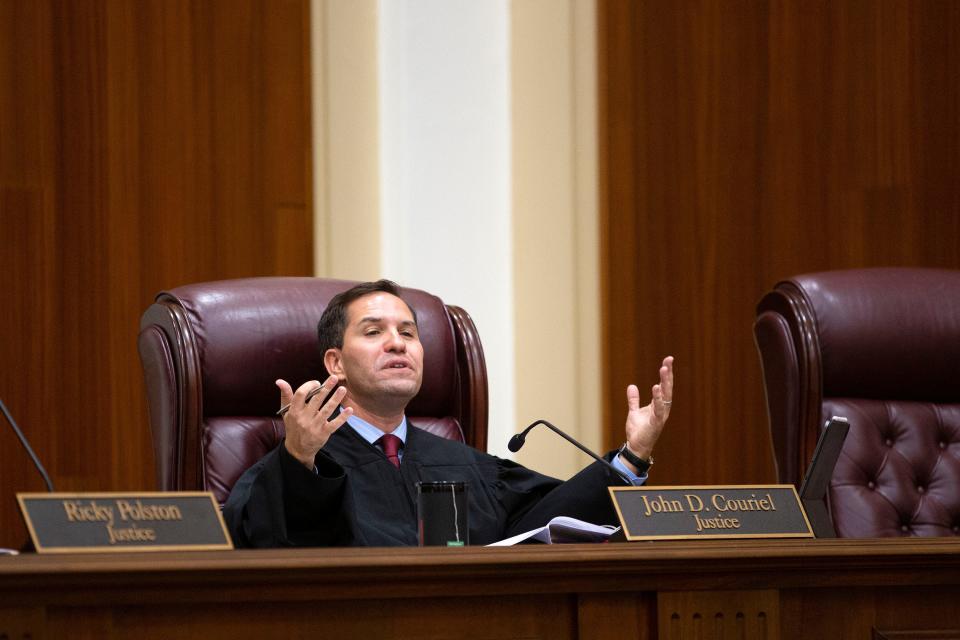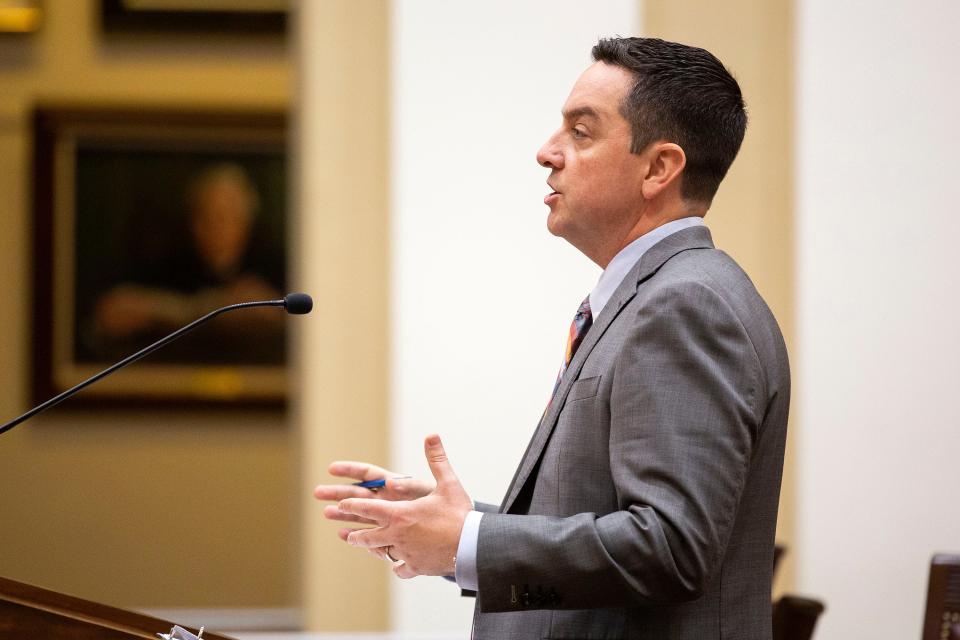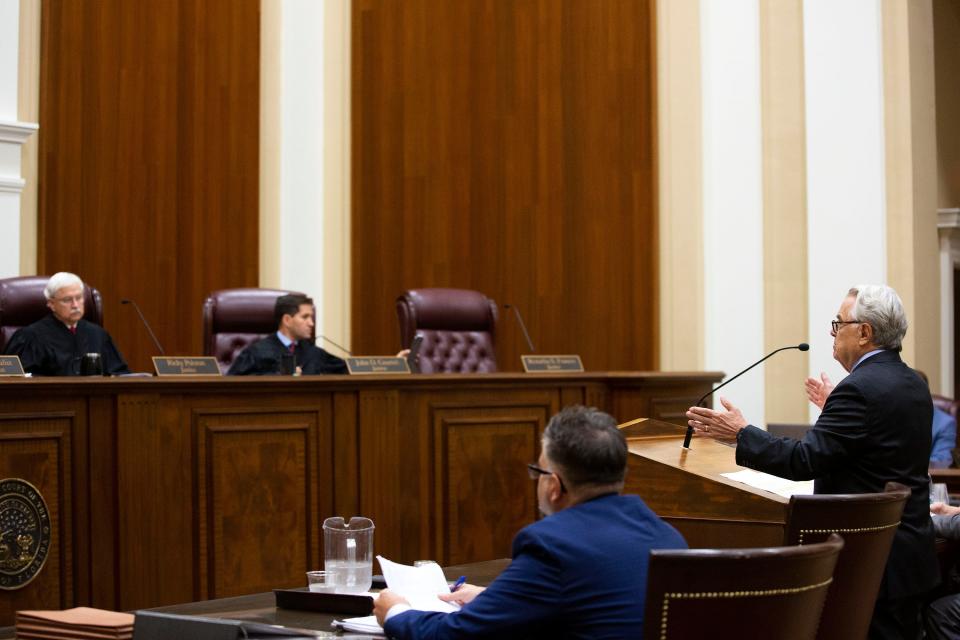As Supreme Court weighs Marsy's Law, group behind it says it shouldn't shield police
Marsy’s Law for Florida, which successfully pushed for a 2018 constitutional amendment to protect the rights of crime victims, says the measure should not be used to shield the identities of on-duty police officers in use-of-force case.
The announcement comes roughly 10 months after the Florida Supreme Court heard oral arguments in a case involving two Tallahassee police officers who fatally shot suspects and asserted their privacy rights under Marsy’s Law, successfully blocking public release of their names. The court has not yet issued a decision.
Marsy’s Law for All, the group’s national organization, said it clarified its position on the amendment in response to use-of-force cases across the country in which officers have invoked the law to keep their names secret. Marsy's Law for Florida informed the Democrat of the position in a Tuesday email, saying “no right is absolute” and that all rights must be “weighed and balanced by the courts.”

“When reviewing the conduct of an on-duty law enforcement officer who has used physical force, the right to privacy of their name must quickly yield to the public’s right to know,” Marsy’s Law said in a statement provided Tuesday to the Tallahassee Democrat.
The case awaiting a ruling from the high court arose out of two separate incidents in 2020 in which Tallahassee police officers shot and killed armed suspects who were threatening them. After the city announced plans to release the names of the two officers, the Florida Police Benevolent Association got an injunction while the case headed to circuit court.
The city, joined by a coalition of media outlets including the Democrat pushing for greater police transparency, prevailed. However, the judge’s decision was reversed in 2021 by the 1st District Court of Appeal.

More: Marsy’s Law was meant to protect crime victims. It now hides the identities of cops who use force.
Since its adoption, Marsy’s Law, which grants crime victims privacy and other rights, has been used by police agencies across Florida to shield the identities of officers in use-of-force cases. Agencies from Tampa to Broward County have withheld the names of officers who used lethal force against suspects.
PBA attorneys argued that language in Marsy’s Law explicitly says that it applies to all persons. But lawyers for the city and media said that would lead to perpetual anonymity for officers who use deadly force and undermine police transparency.
Both Tallahassee police officers said they were victims of aggravated assault when they encountered the two suspects, Tony McDade, who was armed with a gun, and Wilbon Woodard, who was armed with a knife. Lawyers for the media argued that Marsy’s Law shouldn’t apply in part because the two officers killed their victimizers.

Marsy’s Law was first enacted in a 2008 voter referendum in California. It has since passed in 16 other states.
Contact Jeff Burlew at jburlew@tallahassee.com or 850-599-2180.
This article originally appeared on Tallahassee Democrat: Marsy's law group says police officer names should be public in force cases

